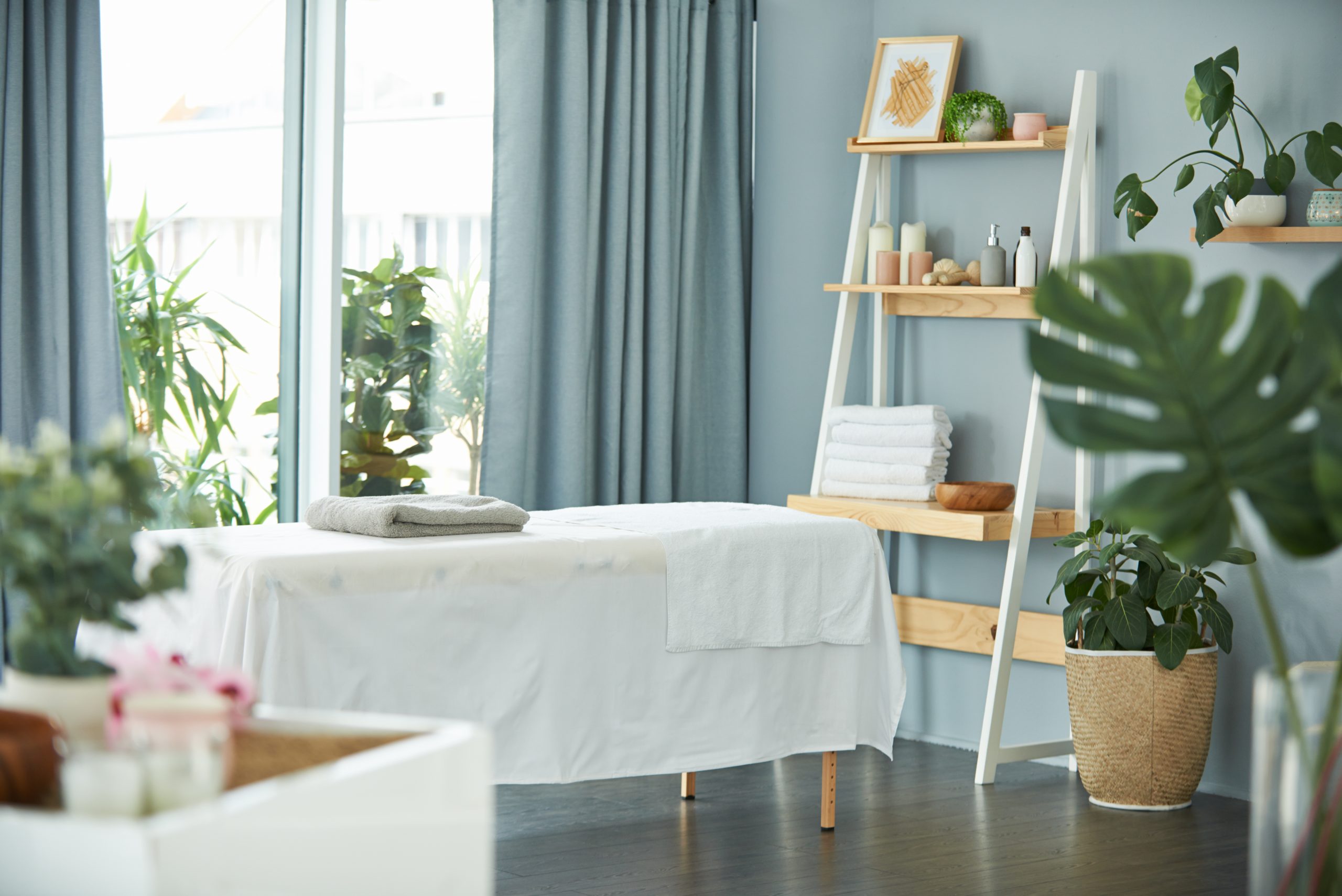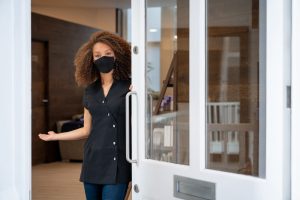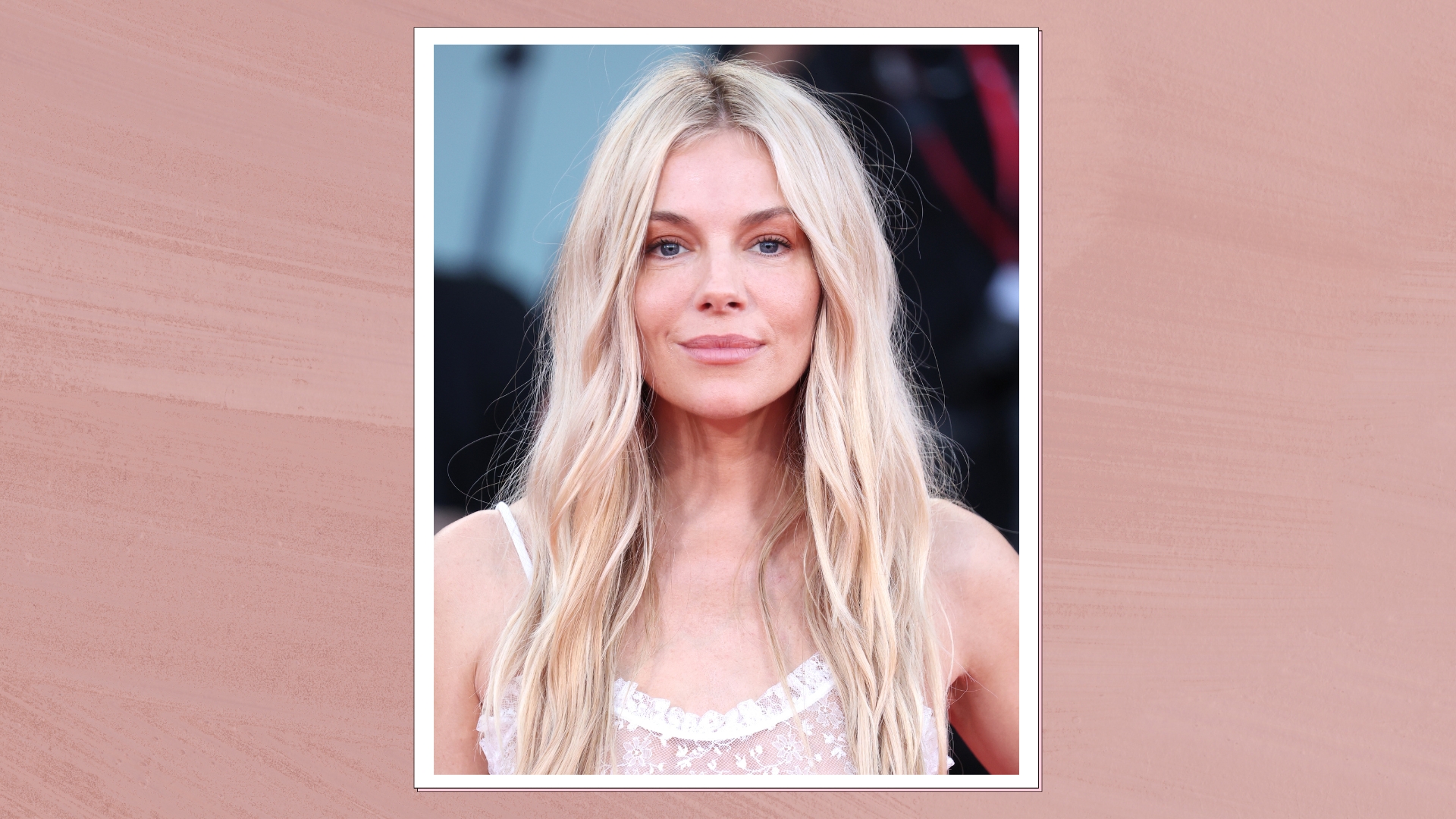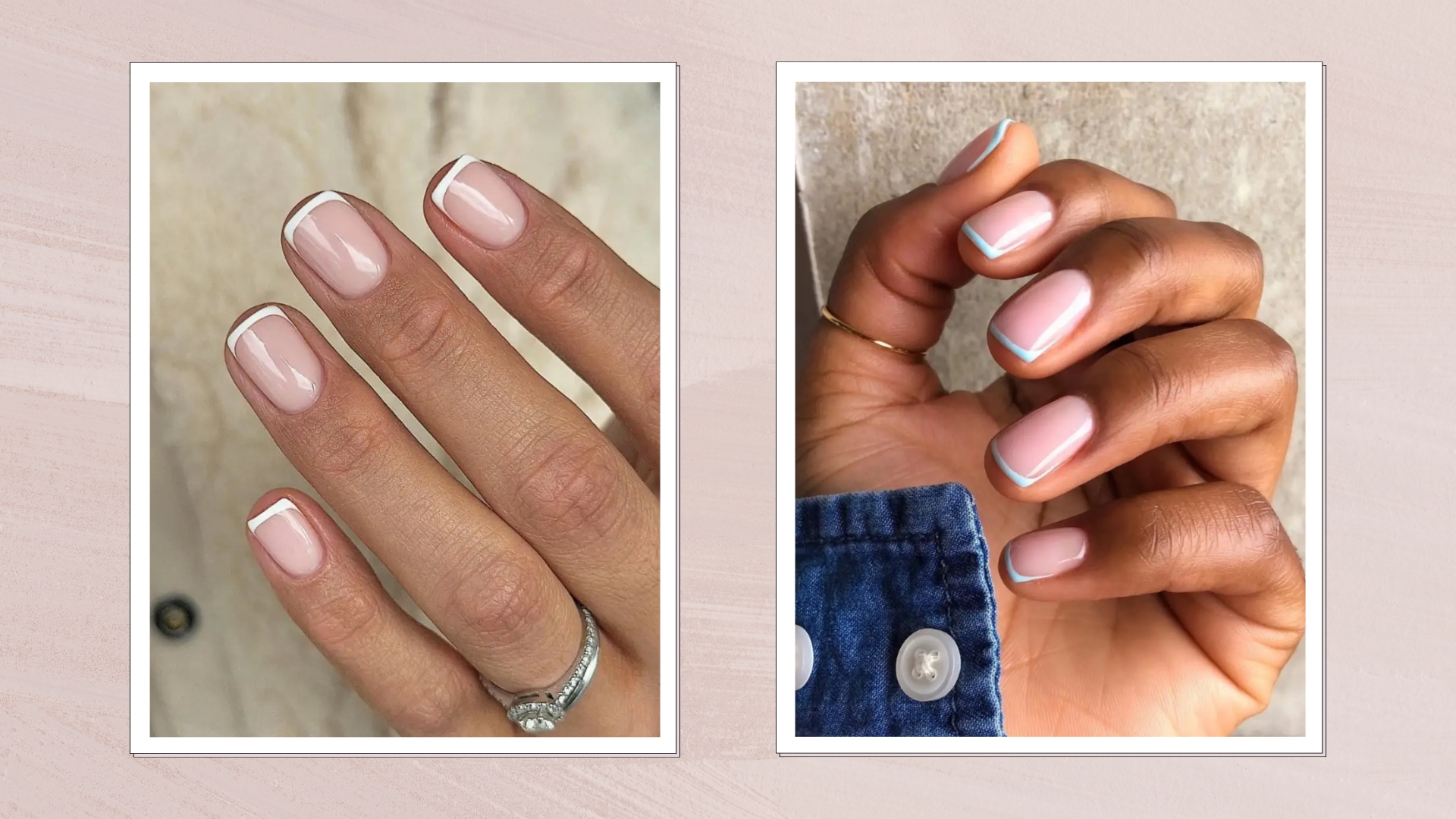Beauty Guild's open letter to the Prime Minister: why are beard trims allowed but no face treatments?
The government has announced a list of prohibited treatments as beauty salons reopen this week.


Following the opening of hairdressers and barbers in July, beauty salons and nail bars were the green light to open from July 13, under strict rules to prevent the spread of Covid-19.
But their reopening came with a strict set of rules, issued by the government on July 9, which raised more questions than gave answers for those in the beauty industry.
Especially as not being able to offer certain treatments - those that require the practitioner to stand 'directly in front of the face' - will mean that some businesses don't survive the pandemic.
This was the warning issued in a letter to Prime Minister, Boris Johnson, by the Beauty Guild over the weekend. TheBeauty Guild, the UK’s largest trade body for hair, nail and holistic industries, expressed their concerns over the limitations - and particularly the ban on eyebrow treatments - for the 16,000 professionals it represents.
What does the letter say?
The letter, which you can read here or find on the guild's Instagram page, describes how the list of government guidelines restricting certain treatments is not 'based on the science of COVID-19 infection prevention and control'. Peter Archer, Director of the Beauty Guild, says in the letter, ‘While it is understandable that some treatments must remain off-limits, there is no scientific reason why eyebrow treatments pose more of a threat than beard trimming. We therefore urge the Government to allow eyebrow treatments to be resumed as soon as possible under the safe working guidelines.’
The letter refers to the double standard around beard trimming being allowed but not eyebrow treatments as 'absurd' and calls out the government's 'flippant and dismissive attitude' to the beauty industry. This was exemplified by an instance in Parliament last week, where MP William Wragg asked Boris Johnson when his constituents could open their beauty salons again, only to be met with laughter by prime minister himself and other members of Parliament.
MORE:When can massage therapists work again? The latest news
Sign up for the woman&home newsletter
Sign up to our free daily email for the latest royal and entertainment news, interesting opinion, expert advice on styling and beauty trends, and no-nonsense guides to the health and wellness questions you want answered.
This incident, the letter says, drew 'scathing comments' from both professionals and clients as the beauty industry is worth more to the UK economy than the car industry.
Peter Archer goes on to suggest that the 'well-being impact of the decision also need to be considered'. He reminds the prime minister, 'many of [the guild] members have suffered financial hardship during the lockdown and imposing further unnecessary restrictions on their livelihoods is grossly unfair.'
The prime minister has yet to respond to the letter and according to government advice, the guidelines will not be altered until it is formerly announced.
So as beauty salons and spas open this week, what’s on the table? And what are the Covid-19 rules in place to prevent the spread of infection?
Can beauty salons do eyebrow treatments?
According to the guidance issued on the government’s website, beauty salons are not allowed to do any treatments that require the beautician to stand in front of the client’s face. This means that eyebrow treatments are prohibited until further changes are made.
‘This means that treatments such as face waxing, eyelash treatments, make-up application and facial treatments, should not be provided until government advice changes, due to the much greater risk of transmission.’ The government's website states.
However, people have been agreeing with the Beauty Guild on the double standard imposed on beauty salons. With one Twitter user saying, 'I really don’t understand why I can go to the barbers and have my beard trimmed and sorted but beauty salons can’t do eyebrows'
Many are arguing that the proximity to the client’s face is the same and therefore it’s confusing why one would be allowed and the other would not.
What other treatments are not allowed at beauty salons?
Government guidance specifies that there can be no work done in ‘high-risk zones’, which are ‘directly in front of the face – should be made available to clients’.
This means that a whole host of regular beauty treatments are off the table for the foreseeable future.
Treatments not allowed at beauty salons will include
- Face waxing, sugaring or threading services
- Facial treatments
- Advanced facial (electrical or mechanical)
- Eyelash treatments
- Make-up application
- Dermarolling
- Dermaplaning
- Microblading
- Electrolysis on the face
- Eyebrow treatments
The British Association of Beauty Therapy & Cosmetology (BABTAC) confirmed this on their Instagram page over the weekend, reminding salons that anyone ignoring the guidance could face serious penalties.
What treatments are allowed at beauty salons?
Despite the limited list of treatments on offer, there are still some that beauty salons are allowed to offer. These mainly include those elsewhere on the body, such as manicures, pedicures, waxing on legs or bikini line.
For those that offer hair cutting services, fringe trims are allowed and "simple beard trims, thinning or removing bulk or length which can be done using either clippers or scissors", according to BABTAC.
What are the Covid rules in a beauty salon?

Just like the other businesses that have reopened – everything from pubs to spas, which are also allowed to reopen this week– there are strict social distancing measures in place to try and reduce the spread of coronavirus. Beauty salons are no different and these are the rules that customers will have to follow for the time being…
2 meter distancing and face masks
If the two metre social distancing rule can’t be maintained, then the person offering the treatment should wear more PPE than they are already.
Government advice stipulates that this should include:
- A clear visor that covers the face.
- The use of a screen or other barrier that ‘protects the practitioner and the customer from respiratory droplets caused by sneezing, coughing or speaking.’
Appointment-only booking system and limited time
Beauty salons, along with hairdressers and barbers, have been advised to work on an appointment-only basis, to reduce the number of people in the salon at any one time. They have also been advised to keep the appointment time to an absolute minimum.
Increased hygiene
As well as increasing the amount of times practitioners wash their hands, beauty salons have also been advised that surface cleaning and cleaning of the equipment should be stepped up.
Staff will also have to wear gloves and use plastic barriers between client spaces, with more space between the chairs.
So while beauty salons are open from July 13, they will not be able to do treatments around the eyebrows or rest of the face until the government announces otherwise.

Grace Walsh is woman&home's Health Channel Editor, working across the areas of fitness, nutrition, sleep, mental health, relationships, and sex. She is also a qualified fitness instructor. In 2025, she will be taking on her third marathon in Brighton, completing her first ultra marathon, and qualifying as a certified personal trainer and nutrition coach.
A digital journalist with over seven years experience as a writer and editor for UK publications, Grace has covered (almost) everything in the world of health and wellbeing with bylines in Cosmopolitan, Red, The i Paper, GoodtoKnow, and more.
-
 We're in awe of Sienna Miller's easy-going and 'piece-y' hairstyle and how perfect it is for spring
We're in awe of Sienna Miller's easy-going and 'piece-y' hairstyle and how perfect it is for springThis laid-back hairstyle is - quite literally - making waves this season
By Naomi Jamieson
-
 We never thought we'd see this 'dated' manicure make a chic comeback, but here it is - and we're on board
We never thought we'd see this 'dated' manicure make a chic comeback, but here it is - and we're on boardClean and angular, short square French tips are a go-to this season for a practical but stylish manicure...
By Naomi Jamieson